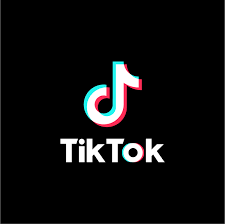What is the real reason behind the tiktok ban?

The U.S. Government’s Push to Ban TikTok:
Unpacking the Reasons and Motives
Over the past few years, TikTok has found itself at the center of a heated geopolitical debate. Owned by ByteDance, a Chinese company, TikTok has become one of the world’s most popular social media platforms, boasting over a billion users globally. However, the U.S. government has expressed increasing concerns about the app, citing national security risks and raising the possibility of an outright ban. While the stated reasons primarily revolve around data privacy and security, the situation is far more complex, involving a mix of political, economic, and strategic considerations.
1. Data Privacy and Security Concerns
TikTok collects extensive user data, including location information, browsing habits, and biometric identifiers like facial and voice data. While such data collection practices are not uncommon among tech companies, the U.S. government argues that TikTok poses a unique risk because of its ties to China.
Under China’s **National Intelligence Law** (2017), companies are required to provide data to the government upon request. This has raised fears that TikTok could be compelled to share sensitive data about American citizens with the Chinese government. Critics worry this data could be used for espionage, tracking U.S. government officials, or even targeting individuals for manipulation or blackmail.
However, TikTok has repeatedly denied such claims, asserting that U.S. user data is stored in data centers located in the United States and Singapore, with plans to store all U.S. data exclusively on Oracle servers. Despite these assurances, skepticism remains, fueled by the broader mistrust between the U.S. and Chinese governments.
2. Concerns About Influence and Propaganda
TikTok’s ability to shape content on its platform has sparked concerns about its potential to spread misinformation or propaganda. The app uses sophisticated algorithms to recommend content, raising fears that these algorithms could be manipulated to promote content favorable to the Chinese government or suppress dissenting views.
For instance, some critics have suggested that TikTok could downplay content critical of China, such as posts about the treatment of Uyghur Muslims or the Hong Kong protests. While there is no concrete evidence that TikTok has engaged in such activities, the mere possibility has amplified calls for stricter regulation or a ban.
The broader fear is that TikTok, given its popularity among younger demographics, could be used as a tool to subtly influence public opinion, shaping political narratives and sowing discord within U.S. society.
3. Economic Competition and Protectionism
The U.S. government’s actions against TikTok have also been viewed through the lens of economic competition. TikTok is one of the few Chinese tech companies to achieve global success, directly challenging American tech giants like Meta (owner of Facebook and Instagram) and Google (owner of YouTube).
TikTok’s meteoric rise has disrupted the social media landscape, forcing competitors to adapt by launching copycat features, such as Instagram Reels and YouTube Shorts. Some critics argue that targeting TikTok is part of a broader strategy to protect American tech companies from foreign competition under the guise of national security.
This argument gains weight when considering the broader U.S. stance toward Chinese tech firms, including the restrictions imposed on Huawei and ZTE. By limiting TikTok’s growth or banning it outright, the U.S. could maintain its dominance in the global tech sector.
4. Geopolitical Tensions
The push to ban TikTok cannot be fully understood without considering the broader context of U.S.-China relations. In recent years, tensions between the two countries have escalated over issues such as trade, cybersecurity, and human rights. TikTok has become a convenient symbol of these broader disputes, representing a clash of values and power between the two nations.
The U.S. government’s actions against TikTok align with a broader strategy to counter China’s rising influence. By targeting Chinese tech companies, the U.S. seeks to limit China’s access to global markets and weaken its technological and economic power.
Criticism of the U.S. Government’s Position
While the U.S. government’s concerns are not without merit, its approach to TikTok has faced significant criticism:
1: Double Standards:
Critics argue that many American tech companies, including Facebook, Google, and Amazon, collect vast amounts of user data, yet they are not subjected to the same level of scrutiny.
2. Lack of Evidence:
To date, there is no concrete evidence that TikTok has shared user data with the Chinese government or engaged in propaganda activities. Without clear proof, some view the government’s actions as fearmongering.
3. Political Motivations:
The push to ban TikTok has been viewed by some as politically motivated, particularly during election years when U.S.-China tensions are a hot-button issue. Former President Trump’s attempt to ban TikTok in 2020, for example, was widely seen as part of his broader “America First” agenda.
4. Impact on Free Speech:
Banning TikTok raises questions about censorship and free speech. Critics argue that such a ban would set a dangerous precedent, allowing the government to restrict access to platforms based on political or economic considerations.
Conclusion: A Complex Web of Motives
The U.S. government’s push to ban TikTok is a multifaceted issue that goes beyond the surface-level concerns of data privacy and security. It reflects deeper geopolitical tensions, economic competition, and political maneuvering.
While legitimate concerns exist about TikTok’s potential risks, the debate also highlights the complexities of regulating global tech companies in an interconnected world. Any decision to ban or restrict TikTok will have far-reaching implications, not only for U.S.-China relations but also for the future of the digital economy and free expression online.
Source: ChatGPT

- News
- Art
- Causes
- Crafts
- Dance
- Drinks
- Film
- Fitness
- Food
- Games
- Gardening
- Health
- Home
- Literature
- Music
- Networking
- Miscellaneous
- Party
- Religion
- Shopping
- Sports
- Theater
- Wellness



